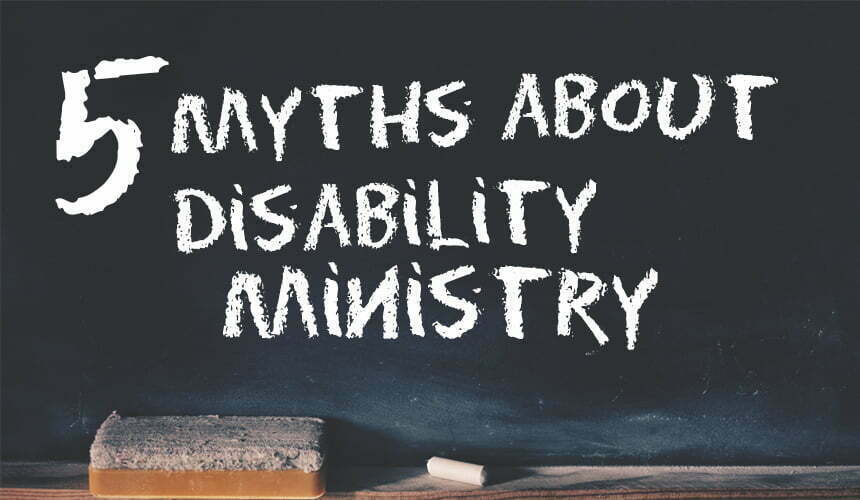

Many people believe that having a formal disability ministry is such a big undertaking that only megachurches can do it. This is simply not true. Every church can do something regardless of size. I have had the privilege of working with churches ranging in sizes from as small as 12 people to over 20,000 people. Both can have very effective ministries. Don’t forget that “the Church” doesn’t have to do with a building or budget size. “The Church” is all about the people.
Let me give you just a few examples.
Not every church may be able to have a stand-alone sensory-friendly classroom, but every church can train up buddies. Buddies can help children & teens have a fruitful inclusion experience. Not every church may be able to host a Jesus Prom, but every church can be welcoming to people affected by disability. At Jesus Proms, guests are treated like royalty. Why would we treat people differently anyway? Not every church may have the ability to employ people affected by disability, but every church can provide volunteer opportunities. Volunteer opportunities are great for job building skills.
Don’t make disability ministry complicated. It isn’t meant to be.
One of the beautiful things about disability ministry that I embrace is the fact that it is not a cookie-cutter ministry. What do I mean by that? Because there is no one set way to do Disability Ministry. I love that about it!
Disability Ministry takes the shape of the local church and community. You simply start with who you have. Meeting the needs of who you have typically determines where you will start. That might be in children’s ministry. Or it might be that you start with an Adult Class. Or it may be that you start with meeting the needs of Caregivers first. Or it is possible that you will start outside the walls of your church and meet a need in the community if you don’t have a defined need in your church.
When you are getting started it is helpful to appoint a leader to champion the effort, if one hasn’t risen within the church. Often that appointed leader is the children’s pastor. Why children’s pastor? Because many times the formative stages of a disability ministry start with a response to meeting a need with a child in children’s ministry.
When this new ministry doesn’t grow beyond the children’s ministry is when it becomes a problem. Children affected by disability don’t stay children forever. They will become teens and soon after young adults. Therefore, an effective Disability Ministry cannot be owned solely by the children’s ministry team. It must be owned by the whole church because disability is not relegated to a certain age group.
Some churches have great aspirations about building a disability ministry that their community will flock to. They can have hearts of gold and all the best intentions, but they are misguided. The “Field of Dreams” philosophy (If you build it they will come) typically doesn’t work. Why? The answer is multi-faceted, but it mainly comes down to one simple word, trust.
If your disability community doesn’t know you how can they trust you? Too often we hear horror stories about how families in the disability community have been burned by the local church. Trust is easily broken and tough to earn. Trust takes time. Your community first needs to know that you care.
To build up trust chips with your community it will require you to go out into your community. I know this sounds elementary, but too often church staff gets too busy with getting ready for Sunday to venture outside their own walls. Take a chance! Be a blessing, no strings attached! You might be surprised what could happen if you intentionally set out into your community to be a blessing.
Before you expect them to show up make sure you are heading out.
God has so much to say in the Bible about disability. One of the most powerful and pointed passages of scripture is found in Luke Chapter 14. In this chapter, Jesus is meeting with the church leadership of his day on one of the final few sabbaths before he went to the cross. Jesus could have taken this final opportunity to teach about church growth, leadership, how to preach a good sermon, how to run a financial campaign or anything else you see at the top of the list for most church leaders. Interestingly enough Jesus doesn’t talk about any of these things.
Jesus takes one of his final opportunities to talk with church leaders about the role of the church when it comes to disability ministry. Three different times, in three different ways, Jesus commands church leadership to reach out to the disability community. He makes it clear that people affected by disability are not only to be brought into God’s family but to be embraced by God’s family. Jesus goes well beyond just a command for inclusion.


